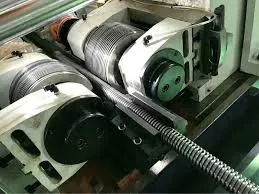
-
 Afrikaans
Afrikaans -
 Albanian
Albanian -
 Amharic
Amharic -
 Arabic
Arabic -
 Armenian
Armenian -
 Azerbaijani
Azerbaijani -
 Basque
Basque -
 Belarusian
Belarusian -
 Bengali
Bengali -
 Bosnian
Bosnian -
 Bulgarian
Bulgarian -
 Catalan
Catalan -
 Cebuano
Cebuano -
 Corsican
Corsican -
 Croatian
Croatian -
 Czech
Czech -
 Danish
Danish -
 Dutch
Dutch -
 English
English -
 Esperanto
Esperanto -
 Estonian
Estonian -
 Finnish
Finnish -
 French
French -
 Frisian
Frisian -
 Galician
Galician -
 Georgian
Georgian -
 German
German -
 Greek
Greek -
 Gujarati
Gujarati -
 Haitian Creole
Haitian Creole -
 hausa
hausa -
 hawaiian
hawaiian -
 Hebrew
Hebrew -
 Hindi
Hindi -
 Miao
Miao -
 Hungarian
Hungarian -
 Icelandic
Icelandic -
 igbo
igbo -
 Indonesian
Indonesian -
 irish
irish -
 Italian
Italian -
 Japanese
Japanese -
 Javanese
Javanese -
 Kannada
Kannada -
 kazakh
kazakh -
 Khmer
Khmer -
 Rwandese
Rwandese -
 Korean
Korean -
 Kurdish
Kurdish -
 Kyrgyz
Kyrgyz -
 Lao
Lao -
 Latin
Latin -
 Latvian
Latvian -
 Lithuanian
Lithuanian -
 Luxembourgish
Luxembourgish -
 Macedonian
Macedonian -
 Malgashi
Malgashi -
 Malay
Malay -
 Malayalam
Malayalam -
 Maltese
Maltese -
 Maori
Maori -
 Marathi
Marathi -
 Mongolian
Mongolian -
 Myanmar
Myanmar -
 Nepali
Nepali -
 Norwegian
Norwegian -
 Norwegian
Norwegian -
 Occitan
Occitan -
 Pashto
Pashto -
 Persian
Persian -
 Polish
Polish -
 Portuguese
Portuguese -
 Punjabi
Punjabi -
 Romanian
Romanian -
 Russian
Russian -
 Samoan
Samoan -
 Scottish Gaelic
Scottish Gaelic -
 Serbian
Serbian -
 Sesotho
Sesotho -
 Shona
Shona -
 Sindhi
Sindhi -
 Sinhala
Sinhala -
 Slovak
Slovak -
 Slovenian
Slovenian -
 Somali
Somali -
 Spanish
Spanish -
 Sundanese
Sundanese -
 Swahili
Swahili -
 Swedish
Swedish -
 Tagalog
Tagalog -
 Tajik
Tajik -
 Tamil
Tamil -
 Tatar
Tatar -
 Telugu
Telugu -
 Thai
Thai -
 Turkish
Turkish -
 Turkmen
Turkmen -
 Ukrainian
Ukrainian -
 Urdu
Urdu -
 Uighur
Uighur -
 Uzbek
Uzbek -
 Vietnamese
Vietnamese -
 Welsh
Welsh -
 Bantu
Bantu -
 Yiddish
Yiddish -
 Yoruba
Yoruba -
 Zulu
Zulu
High-Quality Thread Rolling Machines at Competitive Prices
Understanding the Price Dynamics of Thread Rolling Machines
Thread rolling machines are essential equipment in various manufacturing sectors, particularly for producing threaded fasteners, bolts, and screws
. As the demand for precision-engineered components grows, understanding the pricing dynamics of these machines is crucial for businesses looking to invest in efficient production processes.The price of a thread rolling machine can vary significantly based on several factors, including the type, size, and capabilities of the machine. Generally, these machines can be categorized into manual, semi-automatic, and fully automatic models. Manual machines tend to be less expensive, making them an attractive option for small scale operations or startups. On the other hand, fully automatic machines, which offer enhanced productivity and reduced labor costs, command a higher price due to their advanced features and technology.
Another critical factor impacting the price is the machine's configuration and specifications. For instance, machines designed to produce larger or more complex thread designs may incur higher costs. Additionally, features such as digital controls, integrated measuring systems, and advanced lubrication systems can increase the overall price.
thread rolling machine price product

Market conditions also influence the pricing of thread rolling machines. Economic factors such as demand and supply dynamics in the manufacturing sector can lead to price fluctuations. Furthermore, raw material costs, production expenses, and technological advancements in machine design can contribute to variations in pricing. For example, a surge in demand for specific threaded products can lead to increased investment in thread rolling machines, thereby potentially driving up prices.
Geographical location is another aspect that can affect pricing. Import tariffs, shipping costs, and local manufacturing capabilities may result in price differences for the same equipment across regions. Buyers must consider these factors when evaluating potential suppliers, as sourcing a machine from a local manufacturer might be more cost-effective than importing one.
Ultimately, when considering the purchase of a thread rolling machine, businesses should conduct thorough market research, weighing both the upfront costs and the long-term benefits of productivity and efficiency. By doing so, they can make informed decisions that align with their operational needs and budget. Understanding the nuances of pricing in this sector is essential for maximizing your investment in thread rolling technology.
